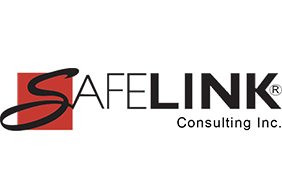Dental practices must ensure that their infection control procedures and policies are working to protect their workers. Here you'll find some helpful Q&A from SafeLink Consulting's Webinar: Long Term Impact of COVID-19 on Infection Control in the Dental Practice held on April 16, 2020.
Learn more about managing your COVID-19 Safety Program
Q: Can COVID-19 grow in dental unit waterlines?
A: The closing of many dental practices for a longer period of time has resulted in stagnation in the waterlines. Bacteria grows quickly in waterlines to begin with and stagnation leads to increased biofilm production, creating an environment for pathogens. ProEdge Dental Water Labs has created a protocol for helping dental practices to shut down their dental unit waterlines. This protocol is explained in the webinar video starting at 37:38. ProEdge recommends shocking the waterlines for 3 nights.
Q: Should gowns be laundered after every use or once per day?
A: If the patient is confirmed or suspected to have COVID-19, then the gown must be laundered after each use. If the patient is not suspected to have COVID-19 exposure, then the recommendation is that you still launder the gowns more frequently that you may have done in the past, which is when they’re visibly soiled. Laundering the gowns more frequently helps to reduce the transmission from a patient that is asymptomatic as you started treatment.
Q: Does the OSHA catch-all general duty clause require N-95s to be provided to workers for all patients, given that there are asymptomatic patients?
A: There will likely be a little less restrictive requirements from OSHA in this situation as long as you follow whatever the CDC is publishing. OSHA says that you need to try and protect your employees. There may be situations where PPE is not available, so if you have identified a risk you should do your best to protect employees.
Q: Is there a solution for aerosols that are still present in an operatory after treatment?
A: There is no solid evidence that COVID-19 can be aerosolized. It’s primarily droplets that can be transferred when someone coughs, sneezes, or talks. Ensuring good ventilation and wearing PPE can be critical in protecting you from aerosols that may come from a patient’s mouth for example. Disinfect surfaces when things fall on them.
Q: Is respirator and face shield use now the standard precaution?
A: If you’re creating splash and spatter on a patient that is confirmed or suspected to have COVID-19, you should use a respirator and face shield. For other patients, it is up to the decision of the employer to decide if these should be used, considering that a patient could be asymptomatic prior to treatment.
Q: Are the N-95 masks a requirement for every patient or just COVID-19 positive patients?
A: The requirement is that if it is a suspected or confirmed COVID-19 patient the healthcare provider is required to wear a N-95 respirator, but it is not a requirement for all interactions with patients. For example, if you have a patient that is perfectly healthy, it is up to your discretion whether you want to require the practice staff to wear a respirator with all patient interactions. It’s important to consider the incident rate in your area and be aware that some patients could be asymptomatic and be infected with the virus without being aware of it.
Q: How do you use PPE around loops and headlights?
A: First, determine that the patient is not confirmed or suspected positive for COVID-19. Because of the high risk of this situation, do whatever you can to protect your own health and safety. Consider seeking alternative tools as far as loops and lights. You should only treat a suspective or active COVID-19 patient in the case of an emergency. Consider postponing treatment if it is not an emergency.
Q: Is there something that has been released by the CDC or FDA that says a face shield can be reused with proper disinfection even if the item has a single use designation by the manufacturer?
A: Yes; because of the emergency use authorization and the limited access to PPE you can clean and disinfect those items as long as you do it properly. For example, there may be situations where certain disinfectants may damage the face shield. Be sure to read the manufacturer’s instructions for the proper way to clean and disinfect the face shield.
Q: Is there any movement from ADA or AGD to help provide N-95 masks for dentists to purchase?
A: We recommend that you contact ADA or AGD directly for that information. Most states have restricted dentistry to emergencies only, so they’re diverting many requests for purchasing these from the dental side to the medical side. You may be able to check with the EUA to purchase alternatives. Check with distributers, but make sure to do your due diligence to ensure you know where they’re coming from. They do have some of the companies listed that manufacture respirators. Respirators need to fit properly and seal securely onto the user’s face to work properly; however, a respirator that doesn’t seal completely or isn’t NIOSH approved is still more effective than a surgical mask. Consider using your well-fitting respirators for your employees at highest risk and use others for lower risk situations. OSHA announced in March that they will not require annual fit testing at this time; however, fit testing still must be done for the initial use. Be aware that fit test kits can be difficult to find. You should also have a written Respiratory Protection Program; SafeLink has developed a Respiratory Protection Program specifically for dental practices.
Q: Can you wear a face covering if other respirators or masks are not available?
A: Consider the risk level and what the activity is doing. If you’re using these in the work environment, for example, an environment that’s creating spray and spatter, some alternate face coverings don’t have the protection that is built into the regular respirators or surgical masks. The face mask is supposed to protect the patient from the person wearing the mask, not the other way around. The respirator is meant to protect the wearer from the patient. If you’re just having social interaction and you’re maintaining distance, any kind of covering over your face could at least help to be a barrier between any droplets that might get to you. Practice social distancing whenever you can in those situations if you’re going to use an alternate face covering rather than a regular mask.
Q: How do I get CE credit for watching this webinar?
A: Complete the Quiz at end of the video to receive a Certificate of Completion that can be used for filing your own CE credit or as proof that you completed the course. To get AGD PACE Program credit, complete the Course Evaluation after watching this video. This Evaluation must be completed for SafeLink to file AGD PACE Program FAGD/MAGD Credit on your behalf. The Evaluation is also available after completing Quiz. Disregard the instructions in this prerecorded webinar video about requesting CE credit.
Q: Can you double up a 3 to make a 5 mask?
A: Likely wouldn't be considered improving the protection substantially. Regular surgical masks are rated 1-3 by the ASTM standards. It’s still a barrier, and a level 3 is the highest barrier protection on those surgical masks. Use your own discretion with this; doubling up may give you some comfort knowing that it might help, but at the same time you might be depleting surgical masks at a higher rate.
Q: Who does the fit testing?
A: You can do the fit testing as the employer. OSHA has a website and a video that shows you exactly how to do the fit testing, so you should train someone at your practice on how to do it. They also have records for documenting the fit test on their website. Bitrex is a fit test that’s easy to use.
Q: Are dentists going to be required to test themselves, employees, or patients for the COVID-19 antibody?
A: We don’t know as of the time of this recording. We will likely get new guidance as the work restrictions are reduced or eliminated. Will likely get specific guidance that will come out from the CDC on how we’re going to establish a new normalcy going forward, which may include doing certain kinds of testing, taking temperatures, or adding more information to our medical questionnaires. It should evolve very quickly. SafeLink will publish new information on its website and in blogs, so keep checking there for information.
Get online courses to train your staff on infection control or get a customized, private virtual safety training for your staff. Get a virtual safety assessment for your practice.
Managing COVID-19 Infection Control for your Dental Practice
CONTACT US FOR MORE INFO
Protecting Patients and Staff When Resuming Your Dental Practice
Long Term Impact of COVID-19 on Infection Control in the Dental Practice
Get a Virtual Training + Assessment
Learn more about what SafeLink Consulting can do to help your business with compliance services, including safety compliance, to meet OSHA training requirements and quality system consulting to meet FDA compliance. SafeLink Consulting assists businesses with workplace safety training, infection control training, HIPAA training online, quality systems, assessments, audits, due diligence, and more.
Industries include:
Dentistry compliance - assisting the dental practice with meeting requirements for OSHA, HIPAA, EPA, and CDC guidelines, patient safety and employee health & safety
Dental Laboratory compliance - assisting the dental lab with meeting requirements for OSHA, FDA, and CDC guidelines, employee health & safety, plus FDA requirements for lab manufacturing custom implant abutment /gmp for medical device manufacturers
Medical Device Manufacturers compliance - assisting with meeting OSHA compliance & FDA requirements, GMP - good manufacturing practices
General Industry compliance - assisting with OSHA compliance and FDA compliance as it pertains to the specific business
Beverage Industry compliance - assisting beverage businesses such as the craft brewery, winery, cidery, distillery, vintner with meeting OSHA compliance, health & safety, FDA requirements / GMP - Good Manufacturing Practices
Get notification when new regulatory news or compliance training courses are added by subscribing to our email news.







Leave Comment